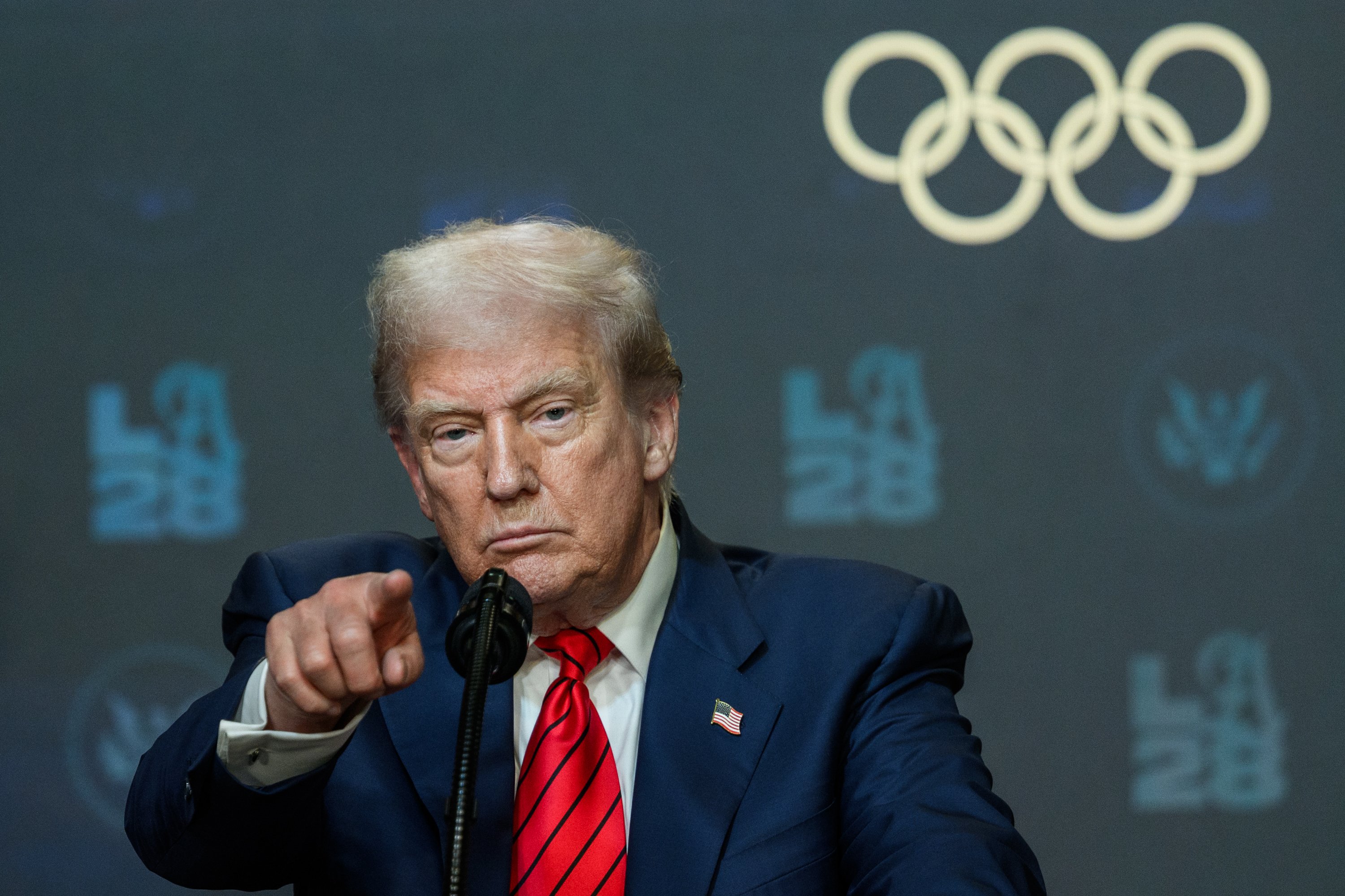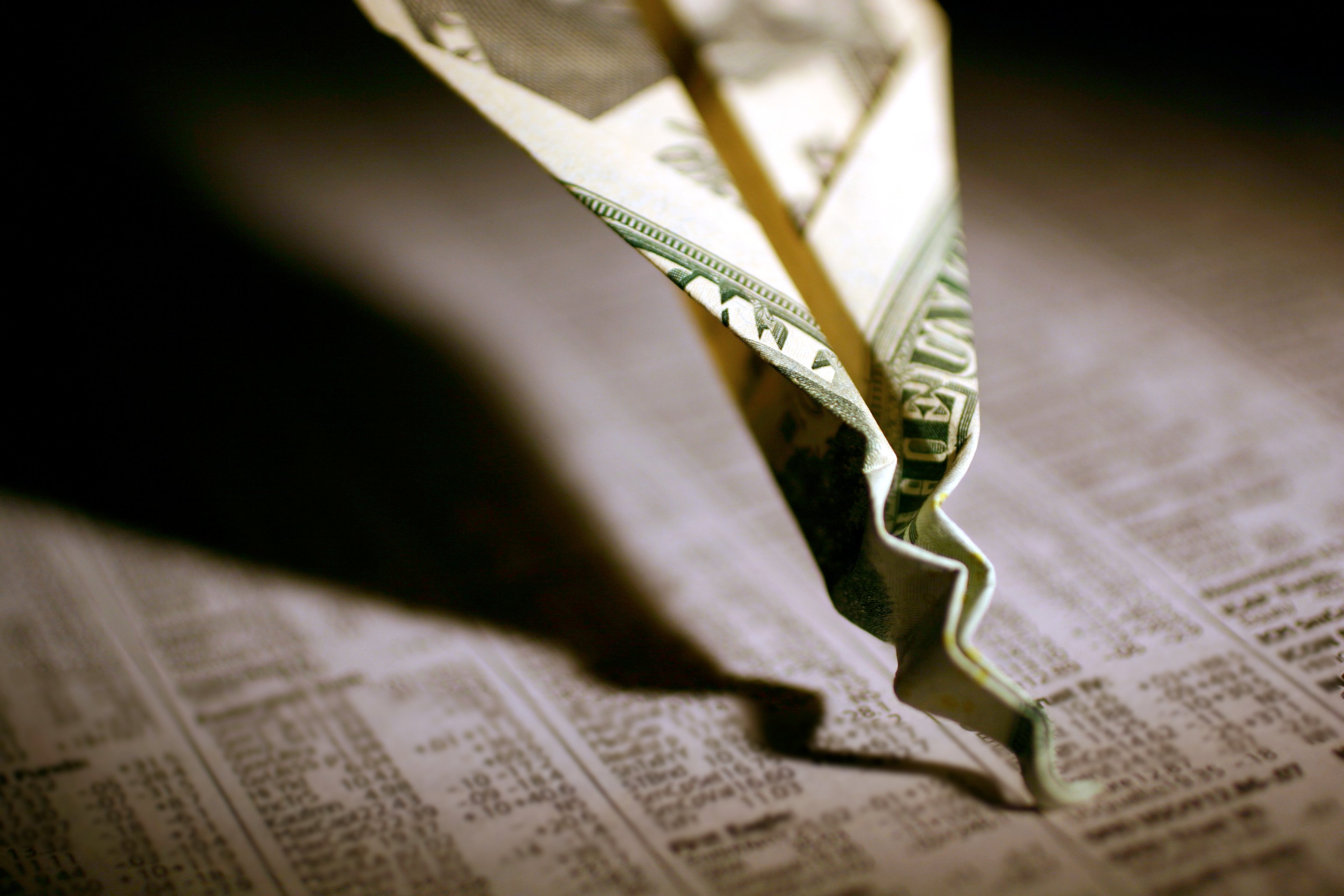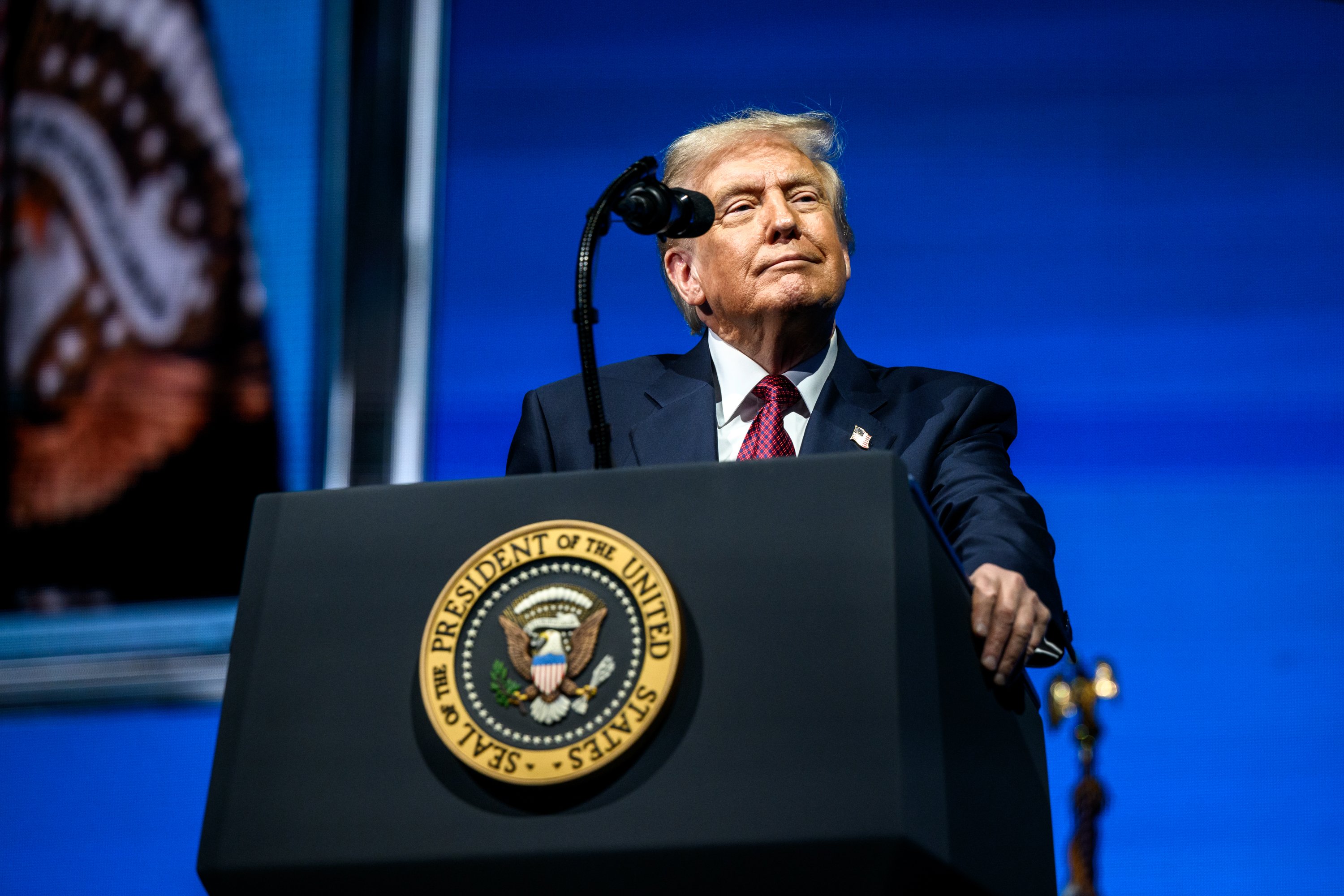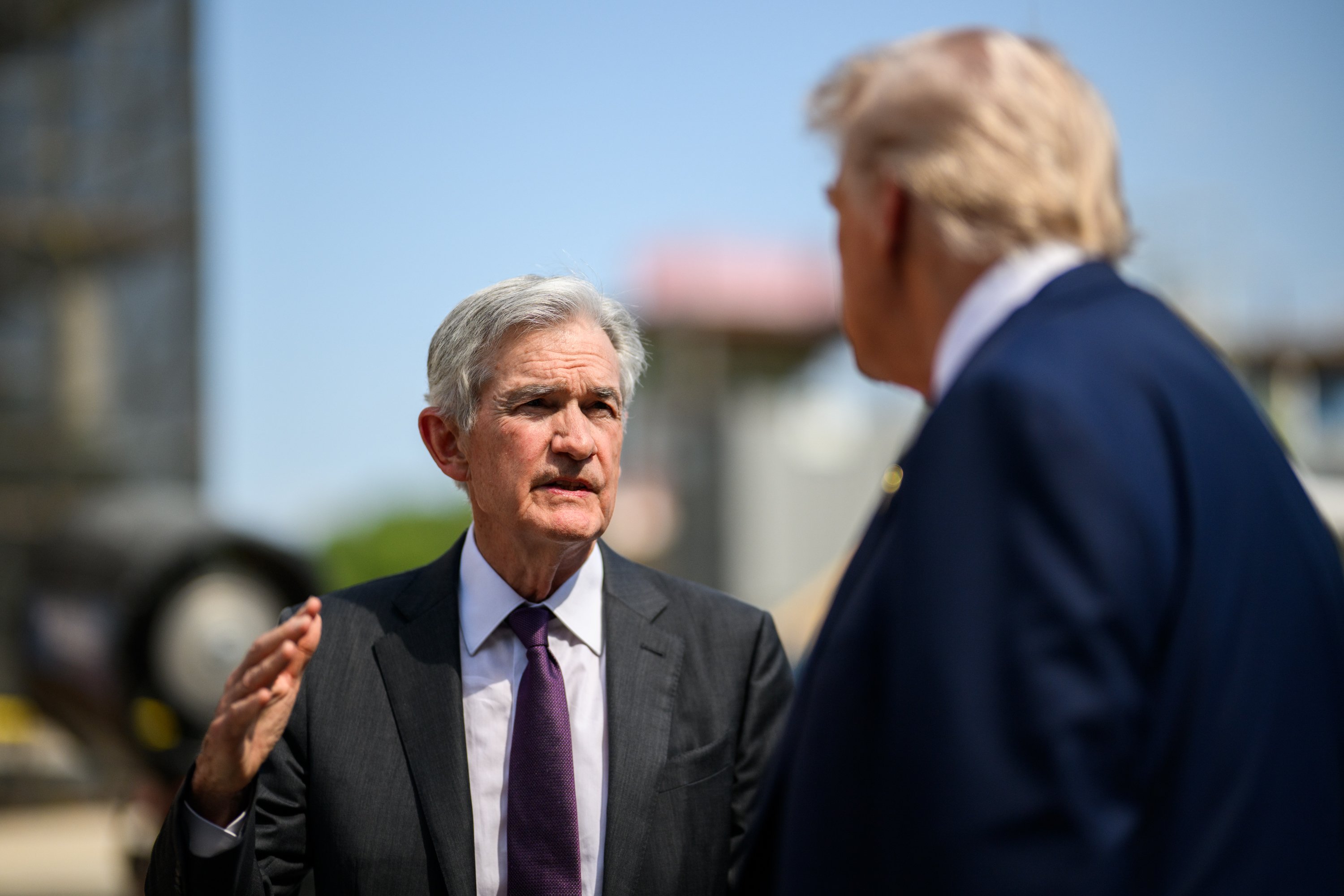Stocks Complete Roller Coaster Day
4:01 p.m.
U.S. stocks whipsawed on Monday, swinging between gains and losses in a chaotic session driven by a flurry of market-moving headlines. The S&P 500 was down much more earlier in the day, but ultimately closed just 0.2% lower — marking its third straight loss as the index edged closer to bear market territory.
If you're looking for some actionable steps to take, check out the following reports:
- The Motley Fool's Market Volatility Toolkit: Our recently updated long-term perspective on market declines, practical steps for preparing your portfolio, and insights into what The Motley Fool is doing in our own portfolios.
- Prepare for the Coming Recession: While a recession now isn't guaranteed, a recession someday is basically inevitable. Robert Brokamp's analysis helps you understand what happens during economic downturns and offers specific actions to shore up your personal finances.
White House Open to Negotiations
4:00 p.m.
The White House is prepared to enter “meaningful negotiations” in the coming weeks with more than 50 countries that have so far responded “positively” to Trump’s tariffs, according to U.S. Treasury Secretary Scott Bessent in a post on X. China is not among the 50 — at least not yet. Earlier Monday, Trump threatened to impose an additional 50% tariff on the world’s second-largest economy if it doesn’t roll back its current 34% retaliatory tariff by tomorrow.
Beware the Head Fake: Market Edition
3:18 p.m. -- Fool Analyst Tim Beyers
Well that was weird. According to reporting by The Associated Press and others, a misinterpretation of statements made in a Fox News interview by Kevin Hassett of the White House National Economic Council led to social media posts that suggested a 90-day pause of most tariffs. The White House has since shot down all hope for a policy shift.
Let this be a lesson: markets will move massively for nonsensical reasons. That's always been true, and it's even more true today in our social media-driven news cycle.
Patience, Fools. You'll always have time to act when you're a long-term investor.
Wall Street's "Fear Gauge" Nears Milestone
3:03 p.m.
The CBOE Volatility Index (VIX) has climbed 6% to around 48 today, after briefly topping 60 early Monday morning. The index tracks expected stock swings over the next 30 days and tends to surge during market turmoil. The VIX has only closed above 50 twice in the past two decades: during the 2008 financial crisis and the early 2020 COVID crash.
Emerging Markets Tumble
3:02 p.m.
Emerging market stocks fell as much as 8.4% Monday -- their worst drop since the global financial crisis -- as rising U.S.-China tensions drove Chinese shares in Hong Kong down 13.8%, officially entering bear market territory.
This is When Dividends Really Work
3:01 p.m. -- Fool Analyst Matt Argersinger
In positive momentum markets like we experienced in 2023 and 2024, dividend-payers and dividend investment strategies will tend to lag the returns of the overall market.
But during highly volatile markets and severe drawdowns like we’re experiencing right now, dividends can play an extremely important role in two ways:
- By dampening the blow to your overall portfolio, preserving capital that can help you prosper during the inevitable rebound, and
- By reinvesting dividends at lower prices that naturally build positions in high-quality companies at lower valuations.
To that first benefit, the Dividend Aristocrats ETF (NOBL 0.41%) -- a fund of companies that have raised their dividends for 25 or more consecutive years -- is down less than 5% YTD as of yesterday’s market close. That’s about a third of the loss of the overall market.
The Schwab U.S. Dividend Equity ETF (SCHD 0.48%), a popular fund with a good balance between high yielders and fast dividend growers, is down about 6%.
This is the helpful job dividend strategies can provide during severe market drawdowns like this one.
Blackrock CEO Weighs In
1:54 p.m.
Larry Fink, CEO of the world's largest asset manager, BlackRock (BLK +0.56%), warns that stocks could drop another 20% from current levels. He says many CEOs he’s spoken with believe the U.S. is already in a recession. BlackRock is slated to report earnings this Friday, alongside the major banks.
Small Caps Getting Hit Harder Than S&P 500
1:39 p.m. -- Fool Analyst Bill Barker
The Russell 2000 has spent most of the day more in the red than the larger-cap indices. That’s probably to be expected when expectations for a recession are on the rise, as they are today. Smaller-cap stocks, more tethered to the domestic economy than larger caps with more exposure to global markets, are likely to get hit harder when recession fears are on the rise, if those calculations are that the U.S. is more exposed to a recession than international markets. Balancing this out, somewhat, is the fact that odds of multiple interest rate cuts this year (per CME FedWatch) are on the rise. If there are lower interest rates, that will benefit small caps more than large caps, as small caps on average carry greater debt than large caps. Today, though, the recession fears are outweighing any rescue from interest rate cuts.
Former Fed Official Speaks Out
1:31 p.m.
Bill Dudley, former president of the New York Fed, now sees stagflation-- a mix of high inflation and sluggish growth -- as the best-case scenario. He warns that any premature easing by the Federal Reserve risks reigniting inflation expectations, which would force a much more painful tightening cycle down the line. In his view, investors betting on near-term rate cuts are overly optimistic.
When Investors Fear Investing...
11:56 a.m. -- Fool CIO Andy Cross
Two key investor sentiment measurements I follow are sitting near the basement of the historical averages. The AAII one is at 61.9% Bearish vs. 31% historical average. It peaked around 70% during the worst of the bear market of 2009 so we're within shouting distance. That ended up being a great time to be a buyer. The CNN Fear and Greed Index is around its lows too. I find these sentiment measurements interesting to follow as inverse indicators of longer-term potential upside (when sentiment overly pessimistic) or downside (when sentiment overly optimistic). Especially at the extremes.
China Rhetoric Escalates
11:30 a.m.
President Trump is threatening 50% tariffs on China starting April 9 unless Beijing rolls back its 34% retaliatory tariffs on U.S. goods by tomorrow.
Sell-Off Regains Steam
11:18 a.m.
U.S. stock indices gave up their rebound after the White House denied rumors of a 90-day tariff pause. Markets briefly surged on headlines suggesting economic adviser Kevin Hassett said Trump was open to the idea — but reversed once it became clear he hadn’t actually said that.
Asian Markets Take It on the Chin
10:52 a.m. -- Fool analyst Yasser El-Shimy
After a brief honeymoon period, Asian markets have succumbed to the global selling pressure which started with the tariffs' announcement last week. The Hong Kong-based Hang Seng Index stood out with a brutal 13% decline today (worst since the Asian financial crisis of 1997). Markets in Japan, South Korea and elsewhere plummeted as well.
While the selling is indiscriminate, companies with limited U.S. sales should be better off over the medium term.
Volatility Provides the Best Opportunities
10:38 a.m. -- From Fool analyst Sanmeet Deo
The CBOE Volatility Index (^VIX +0.13%) has spiked above 50 today indicating intense fear in the markets. The last two times this has happened was in 2020 during the Covid pandemic and the Great Recession in 2008. After each dislocation, markets have gone on to not only recover but hit new highs. As Ken Fisher says: "Time in the market beats timing the market." This too shall pass, stay invested Fools.
- While the past week in the market has been gut wrenching (~9% declines in the S&P 500), it's a great time to reflect on the fact that this high volatility is what provides the best opportunity for long-term investors to make generational wealth. For the biggest weekly VIX spikes from Jan 1990 through Apr 2025, the forward S&P 500 (^GSPC 0.06%) total returns have averaged 39% over the next 3 years.
- Warren Buffett espouses to "to be greedy only when others are fearful." As we have seen right now in the markets, there is a lot of fear in the markets with calls for recession, inflation, stagflation, etc. A lot of bad stuff can happen in the short-term but in the long-term, our markets and businesses have proven resilient and innovative time again, pushing us through dark clouds each time. It's going to hurt to hit that buy button right now, but this short-term pain will translate into long-term gains.
Stocks Stage Temporary Comeback
10:29 a.m.
U.S. stocks bounced back from sharp early losses after a U.S. official said other countries are approaching the U.S. with some "great" deals. The S&P 500, down as much as 3.6%, and the Nasdaq, off 4% earlier, both turned positive. Markets remain volatile as investors react to shifting tariff news.
I'm Still in Wait-and-See Mode
10:08 a.m. -- From Fool analyst David Meier
- These policy decisions are unprecedented in modern times. And tariffs hurt our consumption-driven economy.
- There is considerable uncertainty now and that will likely continue for weeks if not months. We don't know how other countries will respond, how the administration will respond, etc, etc.
- Markets are slowly digesting the new information and capital is moving away from equities to bonds and money markets. I would like to see the PGI get a little higher (i.e., more fear in the market) and valuations move a little lower before starting to put capital into equities. And with risk free rate still above 3%, we can get paid to wait.
Business Leaders, Investors React
9:50 a.m.
- JPMorgan Chase (JPM +1.04%) CEO Jamie Dimon warned in his shareholder letter that the latest round of tariffs could lead to slower growth and higher inflation, though whether they'll cause a recession "remains in question."
- Billionaire investor Stanley Druckenmiller wrote on X: "I do not support tariffs exceeding 10%."
- Pershing Square's Bill Ackman urged a 90-day pause on tariffs, posting on X: "I strongly believe launching tariffs on April 9th against the entire world -- massively in excess of what we are being charged -- is a mistake."
Investing Through Market Turmoil
9:40 a.m. -- From Chief Investment Officer Andy Cross:
"US markets are selling off this morning after Asia and Europe posted big losses today. The VIX, the popular volatility index, is approaching 50, a level not seen since 2020 as investors struggle to figure out the US tariff policy. My guiding principle is to let history be our guide in rare circumstances like this: 2022, 2008-09, 1987. That's been the best time to not panic and keep investing through it. Could we go lower? Sure. We did in 2008. But as pessimism and frustration builds, we get closer to the lows for investors looking out a few years not a few months. And I'm looking to buy."
U.S. Markets Brace for Another Rough Day
Wall Street lost over $5 trillion in value last week and the turmoil is set to continue when markets open this morning, as businesses and investors reel from President Trump's tariffs and trade policy.
This type of three-day drop -- not seen in the markets since 1987 -- is understandably bound to cause anxiety. As uncertainty grows, we encourage every investor to consider their long-term plans before making any decisions. Tim Beyers, the lead analyst of Rule Breakers and one of our resident mindset gurus, has a few words of wisdom:
"As of this writing, both the S&P 500 and the Nasdaq are likely to open the day down more than 2%. Again. We've not seen this type of turbulence since the outset of the pandemic, which is sure to make some members nervous. Remember first principles, Fools. What is your long-term goal? Could anything that happens today materially derail you from achieving it? If so, think about taking action (i.e., selling some, raising additional cash, etc.). If not, take a break, a breath, and enjoy doing something else. Fool on!"-- Tim Beyers, Lead Analyst
***
From this morning's Breakfast News, international markets plunged overnight:
Market slumps triggered circuit breakers in Japan, South Korea, and Taiwan this morning, pausing trading in attempts to stop panic selling. The Japanese Nikkei fell more than 8% on opening, triggering a bear market. European markets opened around 6% down.
- "More than 50 countries have approached ... the administration about lowering their non-tariff trade barriers, lowering their tariffs, stopping currency manipulation": Treasury Secretary Scott Bessent yesterday stated President Trump had "created maximum leverage for himself," as Israeli Prime Minister Benjamin Netanyahu is set to meet with President Trump at the White House for talks expected to include the 17% levy on Israeli imports. Reports say Japanese PM Shigeru Ishiba will call the president later.
- S&P 500 futures fell close to 4% in pre-market trading: The index is likely to join the Nasdaq in bear market territory soon. Nobody enjoys watching the value of their portfolios go down, but bear markets can be opportunities to put money to work for the long run while stocks are trading at a discount. Focus on long-term, quality stocks without timing the bottom.











